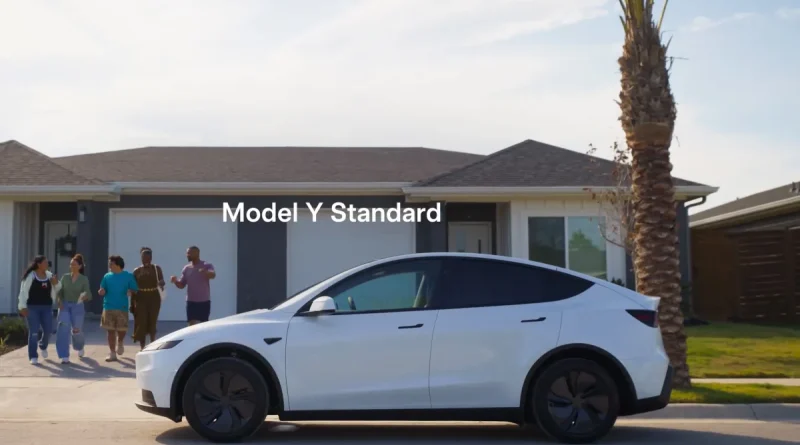Tesla Launches Budget-Friendly ‘Standard’ Versions of Model 3 and Model Y
After over a year of waiting, Tesla has launched its “more affordable models.” The simplified versions of the Model 3 sedan and Model Y SUV are now available, starting at $36,990 and $39,990, respectively.
These new “Standard” models promise an estimated range of 321 miles on a full charge but offer fewer features compared to the upcoming higher-end rear-wheel and all-wheel drive versions. Importantly, they do not include Autopilot, Tesla’s basic advanced driver assistance system, which comes only with traffic-aware cruise control and excludes Autosteer.
The rollout of these budget-friendly models seeks to boost Tesla’s growth following a sales dip in 2024. Yet, the pricing isn’t as competitive as some expected, especially considering CEO Elon Musk’s earlier suggestions of a potential $25,000 Tesla — a project he ultimately scrapped.
The new Model 3 doesn’t even hit the $35,000 mark that Tesla promoted prior to its 2016 launch. That price, crucial for Tesla’s initial success, was mostly unavailable except for a short time as an off-menu option.
Inside, the new models differ greatly from their exterior. Known for its minimalist design, Tesla takes this to an extreme with the Model 3 and Model Y Standard. Features such as a second-row touchscreen, manual steering wheel and side mirror adjustments, FM/AM radio, and only seven speakers as opposed to the 15 in more expensive variants are absent. Additionally, only the front row has heated seats.
On the outside, the light bar present on the pricier Model Y versions has been omitted, and these Standard models do not come with a glass roof.
Musk and Tesla executives have jokingly referred to their cost-cutting measures as a “Game of Thrones but [for] pennies,” showcasing their strategy to reduce expenses in the Model 3 and Model Y Standard.
Techcrunch event
San Francisco
|
October 27-29, 2025
Tesla plans to market these models in various global regions, including Europe. With the recent end of the U.S. federal EV tax credit, the pricing will be notably clear in the U.S. market, unless buyers are in states with strong EV incentives.
This creates a unique situation for potential EV buyers. Major car manufacturers are scaling down plans for pricier electric models, which may reduce competition and possibly favor Tesla.
Ford is developing an affordable electric vehicle platform set to debut by 2027, while General Motors is bringing back the Chevy Bolt. Newer automakers like Rivian and Lucid Motors, along with fresh entrants like Slate Auto, are gearing up to launch EVs in the same price range as the Model 3 and Model Y Standard in the coming years.
Earlier this year, Musk’s involvement with the second Trump administration negatively affected Tesla’s brand. However, Tesla recently had its best quarter ever after the EV tax credit ended, though it remains unclear how long this momentum will last. The new Standard models could place competitive pressure on Tesla’s existing lineup while also significantly influencing the used market.



